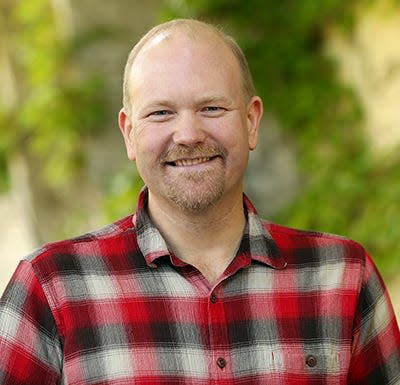Derek Larson: 'The more things change, the more they stay the same'
- Oops!Something went wrong.Please try again later.

In 1849 the French writer Jean-Baptiste Alphonse Karr penned the phrase “plus ça change, plus c'est la même chose,” which is commonly translated into English as “the more things change, the more they stay the same.” Looking back to January of 1924, a century ago, headlines from national newspapers reveal a country very much changed from today—but also very much the same.
1924 was an election year of course: Calvin Coolidge, the incumbent, had not actually been elected president—he was elevated to the office upon the death of Warren Harding in August of 1923. January opened with news of Republican politicians clearing the field for Coolidge, declaring they would support him in the fall. The big political news from the White House for the new year was that only 3,891 people waited in line to shake the President’s hand on January first, a 50% decline from the year prior and the beginning of the end of the traditional New Year’s welcome.
Domestic headlines that first week of 1924 were dominated by the fight against alcohol. Just three years into Prohibition the struggle to enforce the federal ban was already failing. While “dry” New Years parties received some press, the New York Times declared “100 DRY AGENTS FAIL TO STOP DRINKING AS NEW YEAR DAWNS” on its January 1st front page. Though prohibition enforcers were “on duty at all the principal restaurants” presumably some of the tens of thousands who waited to see the electrified ball drop at the Times building had access to drink in their private homes and hotel rooms around the city. Across the country in Los Angeles, the Times reported some 12,000 people crossed the border into Tijuana where drink was still available for their celebrations.
Just like today, news of scandal sold papers too. The New York, Los Angeles, and Denver papers all carried stories of two silent film stars, Mabel Normand and Edna Purviance, who witnessed the fatal shooting of oilman C.S. Dines in LA on January 1st. The shooter, Normand’s chauffeur, said he took action because Dines was “bothering Miss Normand” and she was “in no condition to stay any longer” when the driver went to pick the women up at a party at the victim’s apartment. According to the driver, Dines tried to stop the pair from leaving when the driver “pulled my gun and let him have it.” Coincidentally, Mabel Normand, famous for her on-screen roles alongside Charlie Chaplin and Fatty Arbuckle, had also been the last person to see the prominent movie director William Desmond Tayor alive when he was murdered two years prior.
Personal news, about celebrities or not, appealed to readers as well. A dispatch from Reno, NV, on New Year’s Day heralded “Dr. Arthur F. Newcomb Gets Divorce From His Alleged Nagging Wife.” Another predicted the end of the marriage of an “American countess” who had married the son of the former German ambassador, saying she was “weary of the difficulties her life in Germany had imposed on her and was willing to make almost any sacrifice to become an American citizen again.” On the positive side of the ledger the LA Times announced “Cupid to Start the Year Right” in a story about the clerks who issued 181 marriage licenses on the 31st, concluding that “tomorrow ought to be a big day for the furniture houses.”
New Year’s resolutions were similarly popular a century ago. The LA Times carried a feature on Jan. 1st noting “Happy New Year! We’re Going to Reduce!” It called on readers to pledge to eat less and to send the money they saved on food to the Near East to help feed orphan children. The author chided her audience, proclaiming they would “need all the aid you can get for your will is as flabby as jello.” Resolving to forget the poor stock market performance of 1923 and allowing “We are permitted to look for good times” was all the NY paper would promise for the economy in 1924.
Ultimately, though a century has passed, we can look back on the news of 1924 and it all seems familiar enough to be written today. The more things change…
— This is the opinion of Times Writers Group member Derek Larson. He teaches history and environmental studies at The College of St. Benedict and St. John’s University. His column is published the first Sunday of the month. He welcomes your comments at twg@anderson-larson.net.
This article originally appeared on St. Cloud Times: Derek Larson: 'The more things change, the more they stay the same'
